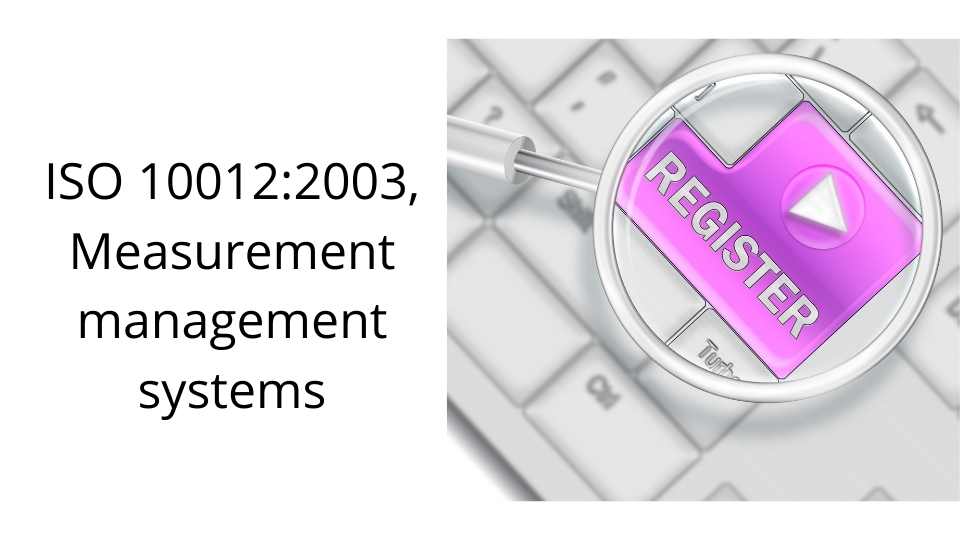The standard ISO 10012:2003 covers measurement procedures as well as metrological proof of measuring equipment. It outlines the requirements for supporting and demonstrating compliance. It is essentially an updated version of ISO 10012 that was created for the quality management requirements of a measurement management system that can be utilized by the organization to perform measurements of the entire management system. It has been implemented to ensure whether or not the metrological standards are met.
Also read- iso registration
In order to meet the measurement management system requirements for certification operations, interested parties might use ISO 10012: 2003 as an input. However, it is not intended to be used as a requirement for demonstrating compliance with ISO 9001, ISO 14001, or any other standard. Certain components influencing measurement outcomes, such as measurement process specifics, personnel competence, and interlaboratory comparisons, are covered in the instructions.
The terminology of ISO 10012 usage and application may be confusing; what follows is the significant text from both that explains the distinction between ISO 10012 and ISO 17025.
- ISO stands for the International Organization for Standardization.. We’ll talk about ISO 10012 certification here.
- ISO helps to ensure that the quality of the products, as well as the products themselves, can be trusted since they are safe. Did you know that ISO has its own set of International Standards (ISO 21000)? Yes, it does.
Did you know that ISO has a technical committee?
The ISO standards are developed by a team of specialists on the technical committee. The draught first, and then all of the shareholders, consumer associations, and other members vote and remark. Only after a thorough examination of the draught and agreement by all members does it become an official ISO standard.
Members of the committee can come from consumer groups, non-governmental organizations, or the government itself. This means that the specialists are from all around the world!
Consumer groups propose that the standards be considered, and then the idea becomes a draught, and all of the views from many shareholders and other experts are studied to make the standard eventually evolve.
IMPORTANT INFORMATION ABOUT ISO 10012:
The measurement management system is referred to. This ISO standard outlines the quality management standards of a Measurement Management System, which is commonly utilized by various firms that performance management as part of their entire routine. It also gives metrological evidence by measuring the equipment used to support and demonstrate compliance.
ISO 10012:2003 outlines the generic requirements and also gives recommendations for measurement process management and metrological confirmation of measuring equipment used to support and demonstrate compliance with metrological requirements. It also describes the quality management standards of a measurement management system, which can be utilized by an organization making measurements as part of the overall management system, as well as to guarantee that metrological requirements are met.
ISO 10012:2003 is not intended to be used to demonstrate conformity with ISO 9001, ISO 14001, or any other standard. As a result, the parties involved may agree to use ISO 10012:2003 as an input in the certification efforts to meet the measurement management system standards. Other standards and guidelines exist for specific components affecting measurement outcomes, such as details of measuring procedures, personnel competence, and interlaboratory comparisons.
Suggested read- iso certification
What is Metrological Compliance?
When measuring equipment is found to be suitable for its intended purpose, this is referred to as metrological confirmation.
What exactly is calibration?
Calibration is an operator that engraves a strong link between quality values and measurement uncertainties!
ISO goes to great lengths to provide improved facilities for organizations all over the world, from deciding to work on a new draught to technically supporting all of the material. Be it through the provision of all standards, the establishment of better norms, and the diversification of the market and organizational growth! ISO supplied reliable standards to companies, allowing them to carve out better products from their basic materials.

